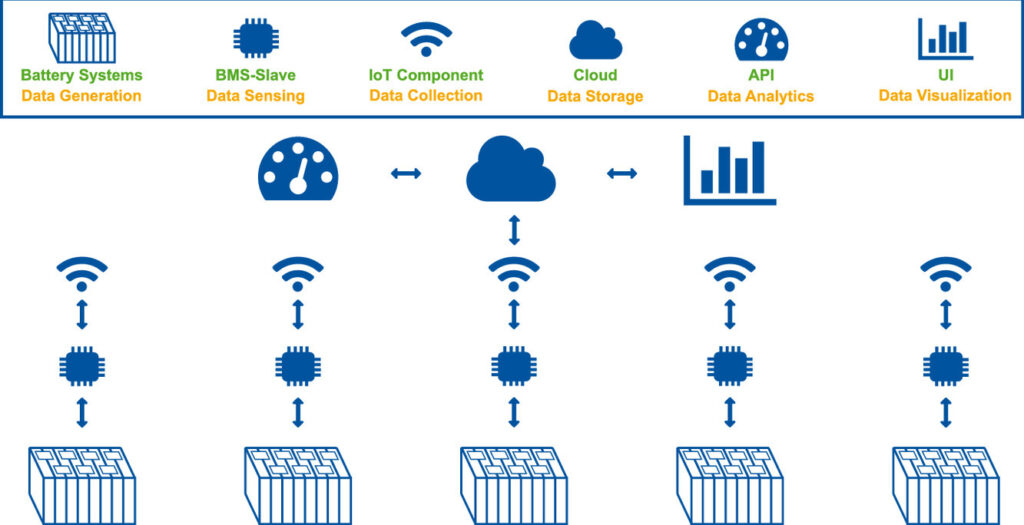Battery in the Cloud
Why It Matters
As batteries continue to be the costliest element in an electric vehicle (EV), AI-powered cloud services have a high potential to improve estimations of the battery’s state of health (SOH) and state of charge (SOC) for improved efficiency, lifetime, and cost. Battery adapts to ongoing changes in battery health due to operating conditions and provide updated figures back to the BMS for continuously improving control decisions.
Vehicle makers can use the technology to provide driver insights, such as range and speed recommendations. In addition, adaptive battery control can improve the battery’s performance and safely extend its lifespan, reducing warranty costs for the Vehicle maker.
Another potential application is EV fleet management, providing fleet operators with invaluable usage insights, such as vehicle charging times and battery predictive diagnostics. Battery care centers can also use this in-depth information to reduce downtimes with rapid diagnostics, and EV charging station operators can effectively optimize their charging service and energy efficiency.
As the EV market grows, so will the supply of second-life batteries. Although they may have reached the end of their ‘automotive life’, these batteries have a significant residual capacity of up to 80%. Tapping into that remaining useful battery life (RUL) in energy storage systems (ESS) for homes has the potential to reduce homeowners’ energy bills.
